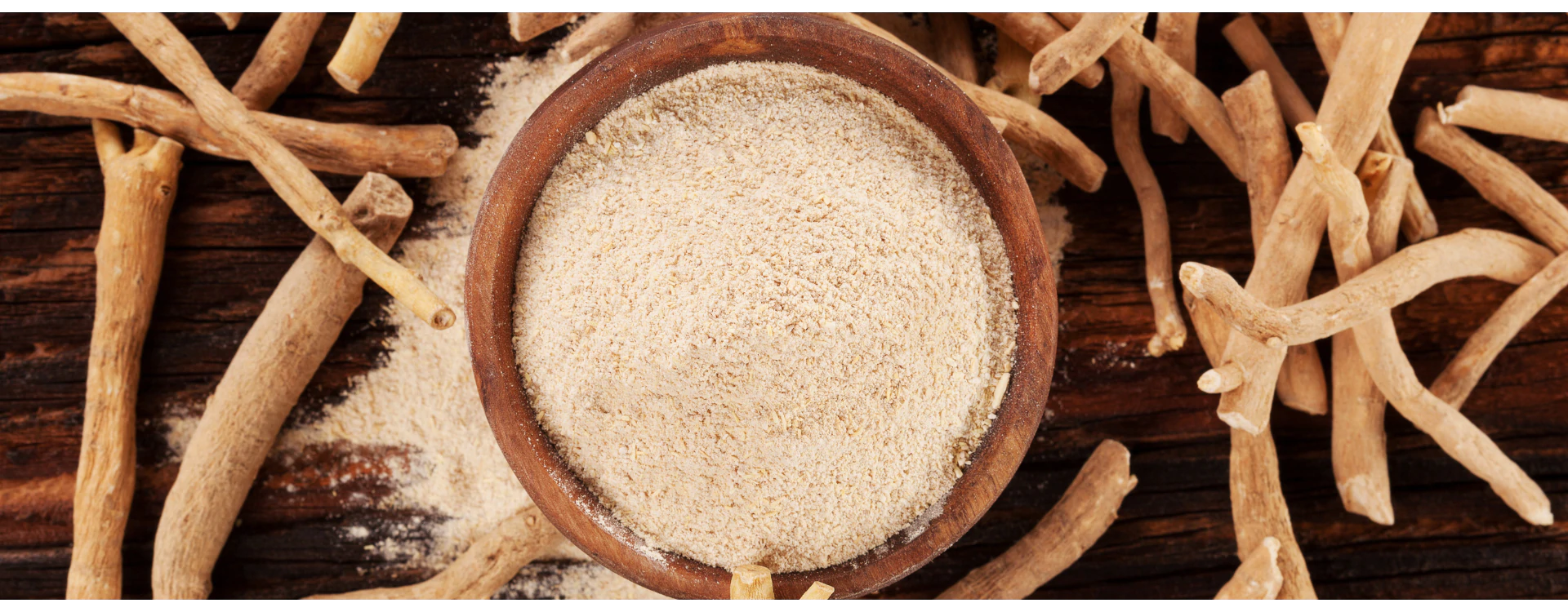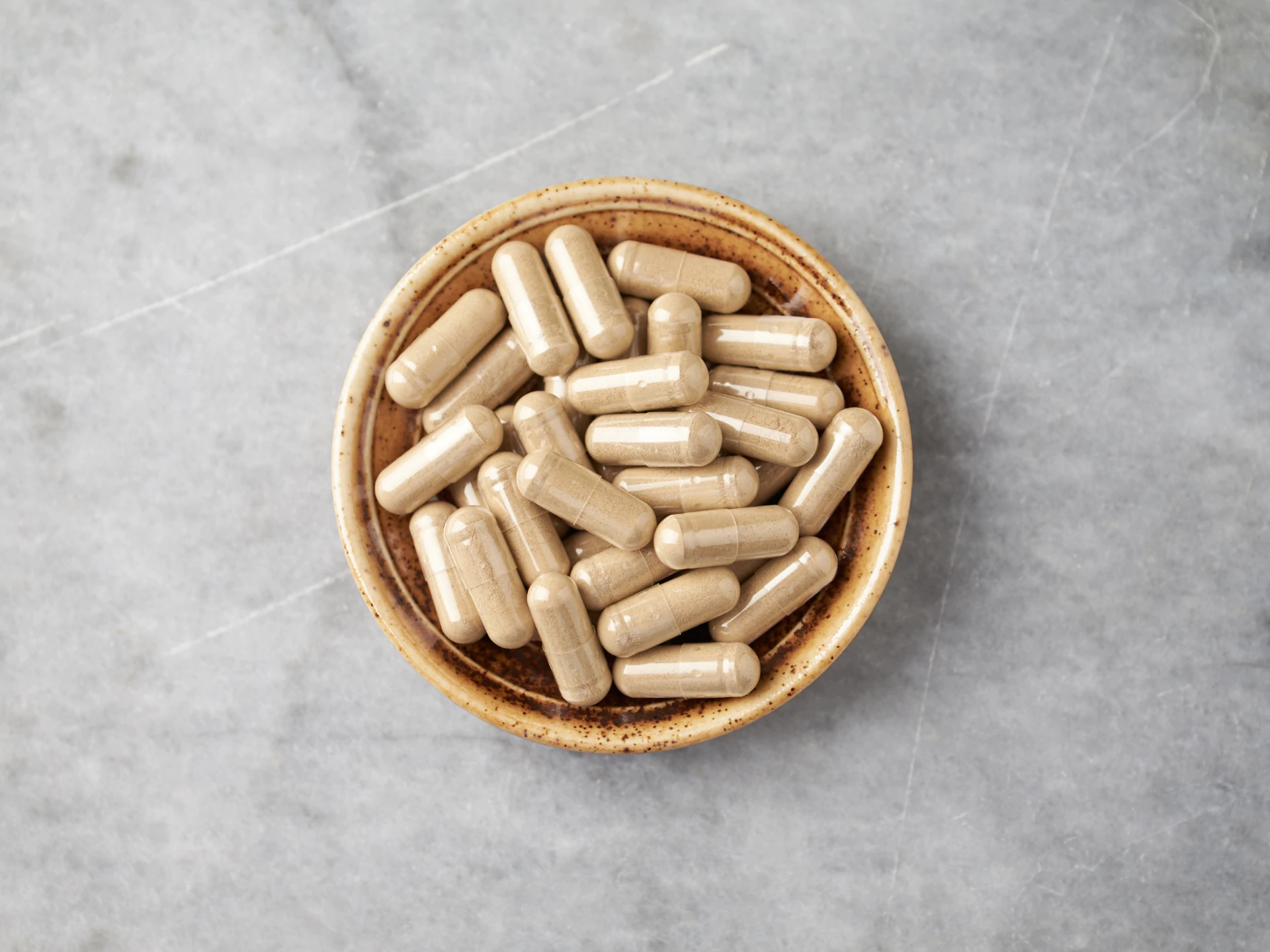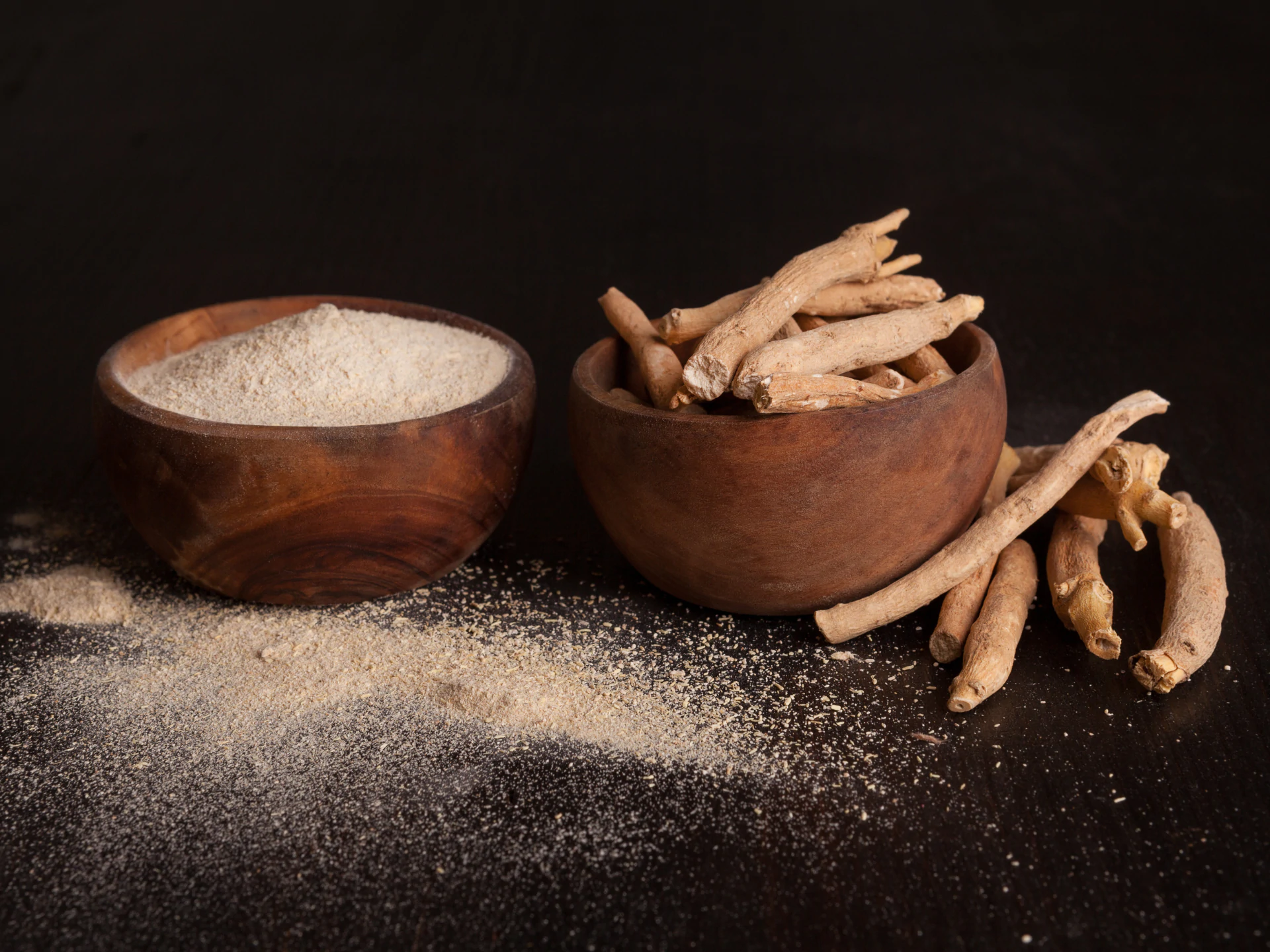
Ashwagandha - properties, effects and health benefits
Table of contents
Natural dietary supplements are doing very well in our country. And that's wonderful, because plants are able to give a lot to the body - including its nervous system. One of them is ashwagandha, also known as Indian ginseng or sluggish vitania. It's a plant that is second to none in the fight against stress and fatigue. Like many other adaptogens, however, it has a number of capabilities that are worth exploring. If you are interested in ashwagandha, the properties, effects and uses of this plant, you are in the right place.


Ashwagandha - what is it?
Its root and leaves have been a cornerstone of traditional Ayurvedic medicine for thousands of years, valued for their comprehensive strengthening and regenerative effects on the body. The name "ashwagandha" comes from Sanskrit and literally means "smell of a horse" - according to tradition, the plant was said to confer strength and vitality comparable to that of a horse. Indeed, there is something to it, because ashwagandha acts on so many functions in our body that it can provide horse health.
Ashwagandha - properties for mind and body
The properties of ashwagandha go far beyond the classic association with a "stress reliever." Its effects extend to both the mental and physical spheres. On the mental level, ashwagandha supports the body in dealing with stress. Its regular use helps lower levels of cortisol, the hormone responsible for tension and anxiety. The first effects often include improved mood, increased motivation and easier falling asleep. The plant can also improve concentration, memory and the ability to learn - which is why it is increasingly popular among people who work intellectually or study. But ashwagandha also works on the body. It strengthens the immune system, improves physical performance and aids muscle recovery after exercise. Athletes appreciate it for naturally increasing strength and endurance, and active people appreciate it for faster recovery from intense workouts.
Ashwagandha - action on hormones
An interesting aspect of ashwagandha's action is also its support for the endocrine system. Studies show that it can balance thyroid hormone levels in hypothyroidism, as well as improve sperm quality and fertility in men. After eight weeks of ashwagandha supplementation, significant equalization of TSH, T3 and T4 levels was reported in hypothyroid subjects compared to placebo [1].


Ashwagandha - effects on the body
In addition to the aforementioned lowering of cortisol levels, ashwagandha also acts on the body by protecting neurons from oxidative stress. It also improves nerve conduction, which translates into better memory, faster association of facts and more efficient functioning of the mind. The plant also increases the production of antibodies and strengthens the body's natural defenses - so it also affects the immune system. It has anti-inflammatory and antioxidant properties. Thus, it has a protective effect on cells, reducing the risk of damage and supporting the body in the fight against chronic inflammation. This is important especially for people with autoimmune diseases. Although in this case it is necessary to consult a doctor. Ashwagandha also affects the reproductive system. It improves semen quality, increases sperm motility and can support the treatment of male infertility. It can also support in regulating blood sugar levels. It increases the sensitivity of cells to insulin, which means the body responds better to the hormone and uses glucose from the blood more efficiently. It also has a calming effect on inflammation by inhibiting the production of pro-inflammatory cytokines. As a result, it reduces swelling, relieves pain and improves joint mobility.
Ashwagandha - contraindications and side effects.
Although ashwagandha is considered a safe plant, it is not suitable for everyone.
It is not recommended for pregnant and lactating women, as well as people with autoimmune diseases without consulting a doctor. In rare cases, it can cause nausea, diarrhea or mild stomach upset, especially when exceeding recommended doses. Remember that any supplement will be harmful to you if you don't use it as recommended by the manufacturer or your doctor.
Ashwagandha - dosage.
You already know very well how ashwagandha affects the body. The medicinal properties of this plant are undeniable, but proper supplementation is also necessary. The most commonly recommended dosage in supplements is a fairly wide range - from 250 to 600 mg of standardized extract per day. If you are looking for mild anti-stress support, want to improve sleep quality or general well-being, choose lower doses - up to 300 mg per day. Higher doses are for people dealing with chronic stress, very physically active people who need recovery support, and those who want to improve cognitive function or boost immunity.
Ashwagandha - how to choose a good supplement?
There is no shortage of ashwagandha supplements on the market, but how to find one that really works? First of all, pay attention to the standardization on vitanolides - they are responsible for the main action of this plant. Good products clearly state their content. Most often you will encounter:
- 5% vitanolides - a very decent standard,
- KSM-66 - an extract from the root, milder, ideal for starting,
- Sensoril® - a combination of leaf and root, works more strongly, for the more demanding.
The form of the supplement is also important. Capsules will work well if you want convenience. Powder may be more versatile (for example, in a smoothie or oatmeal), but it has a rather intense taste and smell - not everyone will like it. There are also liquid extracts, although less popular - they often contain alcohol and work faster, but are not always practical.
Avoid products with unclear composition or those that do not state the content of active substances. The shorter and clearer the composition, the better. It's also good if the supplement has proven quality testing and comes from a trusted manufacturer.
Finally - tailor the supplement to your needs. For some it will be a gentle support during a stressful period, for others - a daily companion for recovery after an intense workout. The most important thing is that it works for you.
That's all that ashwagandha has in store for you. Which one will be best for you? It all depends on the needs of your body and mind. Regardless of them, this adaptogen can be a valuable support - natural, effective and really well researched.
Source




